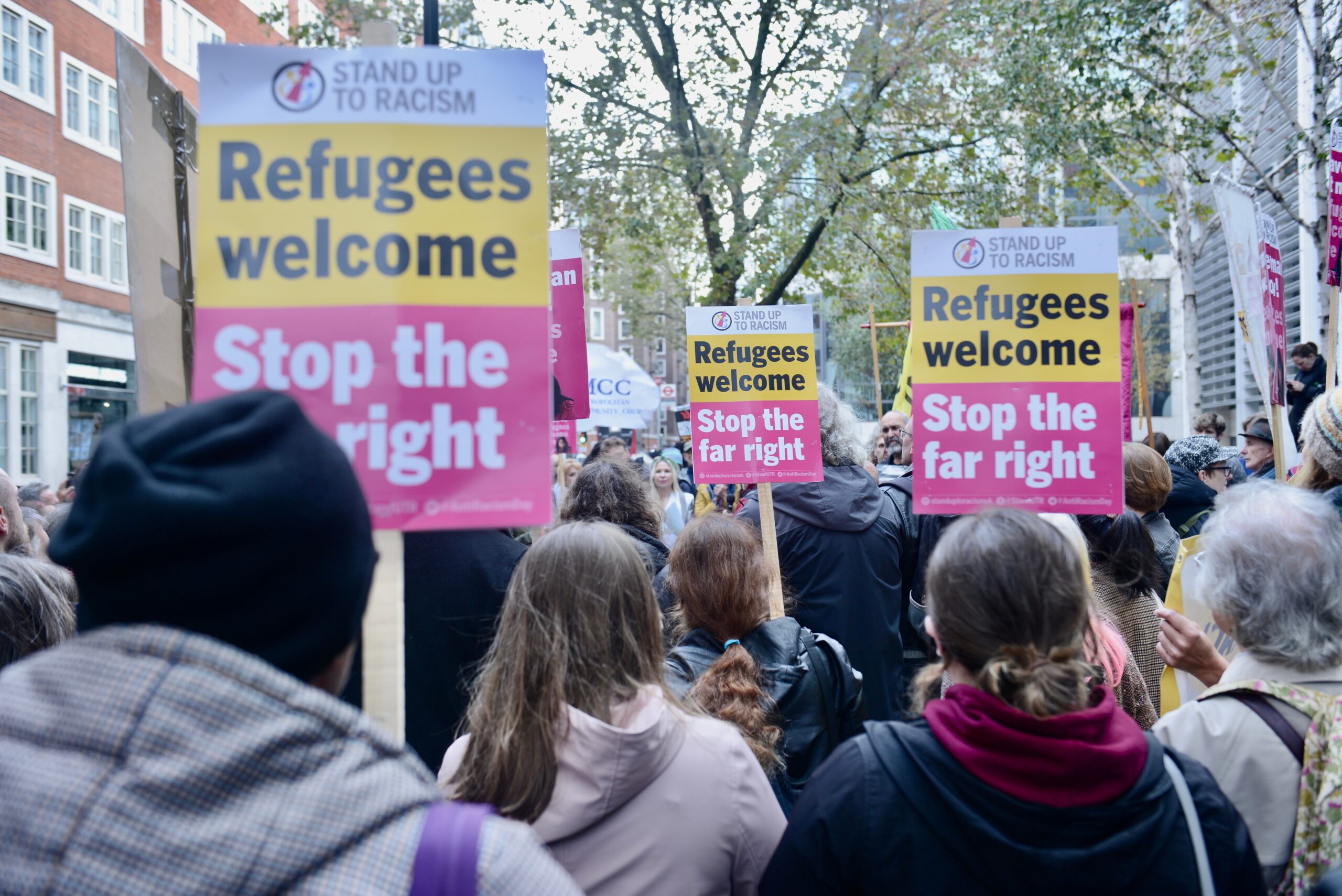In the light of the current anti-immigrant disturbances, Fr Bobby Gilmore, who founded the Migrants Rights Centre Ireland, recalls an article published by The Economist over a decade ago which, even then, was trying to scapegoat immigrants. Ireland, he warns, has learned nothing from its own history of emigration.
“Frightened by the downturn, people are furious with politicians, central bankers and immigrants.” (The Economist 14/04/09)
The economic dam-burst almost twenty years ago saw many experts try to explain the sources of the burst. Most placed the blame on ‘inanimates’ such as the markets, housing, banks, politics, regulation, greed and convenient others.
An article in The Economist identified a new cause for the economic miasma poisoning the lives of people everywhere. How it discovered immigrants were the cause of the crisis was not explained.
Some sections of the media have coupled immigrants with all kinds of criminals, terrorists and drug traffickers over the years. When immigrants see themselves blamed for the economic downturn, they should be rightly angry.
In the past Irish emigrants were angry when they too were scapegoated. Like present-day immigrants, the Irish did the jobs that locals shunned but were envious of in the downturns.
It definitely is a stretch of the imagination by The Economist to frame immigrants, who are the generators of business at home by their remittances, and abroad by their tax contributions and sweat. Their remittances surpass foreign aid contributions.
It is surprising that The Economist, though admitting to being “inherently pro-business,” scapegoats the very people who generate business at home and away. Global trade accounts for 20% of global GDP. Global migration accounts for a mere 3% of global movement.
However, it is not just The Economist that frames immigrants. Recently, media reports gave the impression that immigrants were ripping off the welfare system in Ireland. Yet, when the details of the report were checked it was clear that there are more incidents of welfare fraud recorded in the local population than by immigrants. Of course, the politician interviewed did not articulate that fact, allowing negative assumptions about immigrants to fester.
Other recent media reporting from government departments gave a similar impression. The news of cutting back on work permits for immigrants from outside the European Union again gives the impression that immigrants are the cause of the economic challenges. And if that was not sufficient there was also the public announcement that the cost of work permits was to increase.
Ireland has learned nothing from its own history of emigration. It simply follows the tradition of the Pharaohs; in a crisis blame the weak, the powerless, the poor, the outsider, and drive them further to the margins by imposing excessive tariffs, increasing the cost of a work permit. Immigrants do not have a voice because they do not have a vote.
Is it too much to expect that statements made by public representatives, institutional leaders, journalists and other self-acclaimed spokespersons would be underpinned by an ethic of fairness and objectivity? But then if the market was excess driven by people who created an instant risk-free reality any ethic other than self-gratification did not have a place.
The former Archbishop of Canterbury, Dr Rowan Williams, has written: “Our ethical seriousness is tested by how we behave towards those whose goodwill or influence is of no ‘use’ to us…Ethical behaviour is behaviour that respects what is at risk in the life of another and works on behalf of the other’s need…And for a specifically Christian ethic, the duty of care for the neighbour as for oneself is bound up with the injunction to forgive as one hopes to be forgiven; basic to this whole perspective is the recognition both that I may fail or be wounded and that I may be guilty of error or damage to another.” Have we heard any admission of failure?
There are few, if any, signs of such an ethic in the race to find scapegoats for the present economic crisis. However, it is never too late to hope that the European Member States can shed the miserly, divisive habits of Old Europe. Or are we re-inventing an Old Europe in defining ourselves by exploiting the faults and vulnerability of others than by our own strengths?
“People discover each other in new ways, and the prejudices and wounds of the past can be healed. In the encounter old barriers can be melted away…Migrations are linking the regions of the world and providing and unprecedented possibility of encounter among peoples and religions.” (S. Tomasi)
Maybe, The Economist should pay more attention to the stress, strain, uncertainty, ingenuity and enterprise of immigrant life. It might then make a more objective, unbiased analysis of economic downturns.
“Liminal people or groups are a kind of institutional capsule or pocket that contains the germ of future social development and social change.” (Victor Turner)
We live in hope!
Fr Bobby Gilmore writes and campaigns on migrant issues. He was ordained in 1963 and worked in the Philippines from 1964-1978. From 1978 to 1992 he was Director of the Irish Emigrant Chaplaincy in Britain. He was on mission in Jamaica between 1992 -1999. On returning to Ireland, he founded the Migrants Rights Centre Ireland https://www.mrci.ie/
If you would like the Columbans’ work with migrants, please send your donation to the Far East Office, Dalgan Park, Navan, Co Meath C15 AY2Y. Alternatively, you can donate online at www.columbans.ie/donate or call 00353 46 909 8275.

